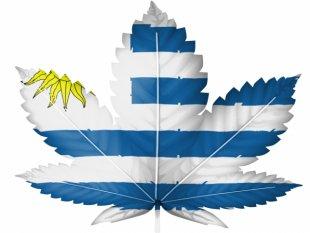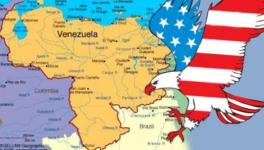Uruguay Braced to Become First Country to Legalize Marijuana
Now that Uruguay's legalization bill has cleared its largest hurdle, the country appears likely to usher in unprecedented change.
After a fierce 13-hour debate, the lower house of the Uruguayan parliament, the chamber of deputies, narrowly approved on July 31 the marijuana legalization bill introduced by President Mujica and his governing coalition. The bill was approved by a thin 50-majority vote of the 96 diputados present in the lower house (out of a total of 99). The bill is now expected to clear the Uruguayan senate where the governing coalition holds a comfortable majority.

Photo Credit: shutterstock.com
Under the bill, a newly created Institute for Regulation and Control of Cannabis will assume "the control and regulation of the importation, exportation, plantation, cultivation, the harvest, the production, the acquisition, the storage, the commercialization and the distribution of cannabis and its by-products."
Buyers would have to be registered on a database and be over the age of 18. They would be able to buy up to 40 grams (1.4 ounces) of marijuana per month in specially licensed pharmacies. The bill also authorizes cultivation for personal use of up to six plants. Growers clubs of 15 to 45 members will be allowed to grow up to 99 plants collectively.
To discourage marijuana tourism, foreigners are excluded from the measure.
Uruguayan president José Mujica and his government first announced their intent to submit a proposal for marijuana legalization under governmental control on June 20, 2012. Possession and use of marijuana has been legal in Uruguay since 1974. The main objective of the proposal was to tackle growing drug-related violence mostly linked to cocaine paste. The idea was to cut off the marijuana marketplace from the most dangerous hard drugs marketplace.
Up until the early 2000s, most of the cocaine trade to the US and Europe was taking place on a northern route throughout the Caribbean and Central America, and the southernmost countries were mostly spared the narco violence that devastated most countries located between Colombia and the US. With increased enforcement in the Caribbean region, traffickers opened new routes to the EU through West Africa, transiting through Brazil and Argentina, spilling into Uruguay. As a result, the traditionally sedate country, one of the safest in Latin America, witnessed a dramatic surge in the trafficking and use of cocaine paste and its associated violence. Most of the marijuana currently sold on the Uruguayan blackmarket is smuggled from Paraguay through the ultra-porous borders with Brazil and Argentine.
Legalization supporters also pointed to the paradox of legal possession and use while production and sale were still criminalized. "The consumption of marijuana has been allowed for 40 years, but it can only be accessed through the narcos, and requires the commission of a crime, in addition to the exposure to other drugs," the Broad Front said in a statement on its website. "We have created a great business for drug trafficking, and that is what we want to start to fight."
The move is followed very closely in the region, among those desperately looking for alternatives to the failed current drug policies. "Uruguay appears poised, in the weeks ahead, to become the first nation in modern times to create a legal, regulated framework for marijuana," said John Walsh, a drug policy expert at the Washington Office on Latin America. "In doing so, Uruguay will be bravely taking a leading role in establishing and testing a compelling alternative to the prohibitionist paradigm."
The Uruguayan initiative received the informal blessing of José Miguel Insulza, Secretary General of the Organization of American States (OAS) on visit in the country ahead of the lower house vote. The OAS regroups all 35 independent states of the Americas, with the domineering and often resented presence of the US, the northerly big brother. Insulza was on a two-day visit to introduce the recently published report on drug consumption in the Americas, prepared by the OAS as a mandate of the Sixth Summit of the Americas. The report favors drug decriminalization of marijuana and other soft drugs, and advocates a broad debate about drug policy. Insulza emphasized that Uruguay is the first country where he is presenting the OAS report, saying, "What better place to start than here, where there is already a debate."
Disclaimer:The views expressed here are the author's personal views, and do not necessarily represent the views of Newsclick
Get the latest reports & analysis with people's perspective on Protests, movements & deep analytical videos, discussions of the current affairs in your Telegram app. Subscribe to NewsClick's Telegram channel & get Real-Time updates on stories, as they get published on our website.
























